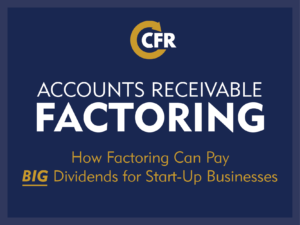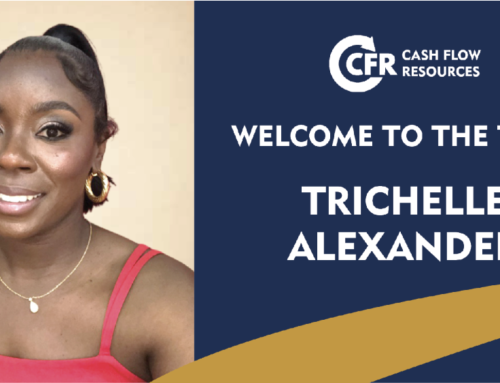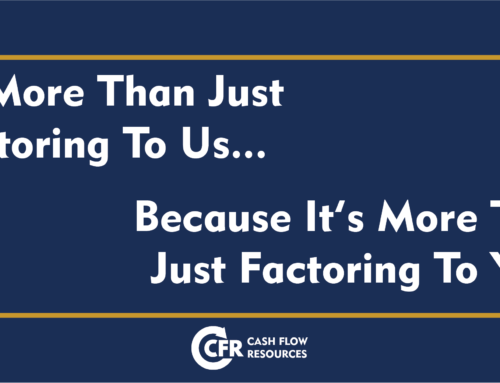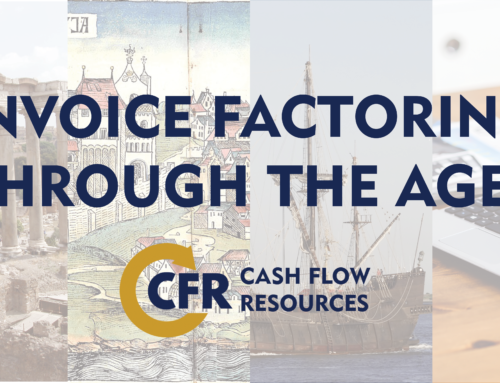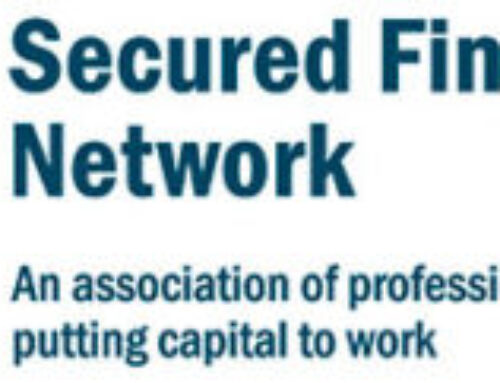How Factoring Can Pay Big Dividends for Start-up Businesses
Imagine this. You are an eager entrepreneur looking to start your own business. You develop a business plan, determine what you need to start your business and look at the costs of the things you need. Panic may set in, right? Starting your own business can be daunting and you may need some help to fund your dream. One thing that we hear over and over is that everything always costs a lot more than anyone will tell you…or what you plan.
To that end, there are primarily two options for an entrepreneur in this position.
- The first is a more traditional route that you may already know, accounts receivable bank financing or a bank line of credit.
- The second option is accounts receivable factoring.
In some ways, these two options can seem very similar. Both can be used to access funds quickly for working capital; however, there are significant differences between the two.
FINANCING
Accounts receivable bank financing usually involves using all company assets as collateral for a loan. A bank will analyze the historical operating results and asset make-up of the business to make its decision. Sometimes, the bank may reject certain assets like accounts receivable if they do not agree with the customer’s terms of repayment or if the debtor does not pay quickly enough. That means that you may not get approved for a loan as big as you need. Since a start-up has little to no historical operating experience, a bank will have difficulty assessing operating experience and customer quality.
FACTORING
Accounts receivable factoring differs from bank lending in that factors look forward to who your customers will be, their credit worthiness, and agreed-upon terms. The factor will examine accounts receivable. If acceptable, factors then purchase invoices at a discounted rate. While they also can deny invoices, factors are typically less strict than banks. Factors usually will charge slightly higher fees to generate funding, but you are probably able to generate more funding availability.
PRO TIP: The bottom line is that a bank underwrites the company/entrepreneur while a factor looks more at the credit risk associated with the company’s debtors or customers. This is especially beneficial to a company that has just started as the past sales history is not there for a bank to review, which is a key component in how they determine how to loan money.
While both are options for new business owners, one benefit of factoring is that you are not taking on debt because the factor buys the invoices. You are selling an asset. A bank loan, however, can have negative effects on your financial situation and has more obligations.
Some factors handle business differently, but we have found that the greatest benefit for the companies that we work with is as follows:
CFR typically advances 80% of an invoice right away giving you that immediate access to capital, releasing the remaining 20% minus fees once the invoice is paid.
For a bank loan, funding is limited to what a borrowing base allows (basically 80% of accounts receivable minus ineligibles of total invoices).
It is exciting to start and run your own business, but it can also be very stressful and expensive. Factoring allows you to start your dream business, and Cash Flow Resources will take you even further. We work with you, not only financially, but in all aspects of your business. As a trusted partner, our team will help you decide the best steps for your business and provide a personalized solution to any issue you may face. No need to stress. Our job is to help your business grow, and we love to see our clients succeed! What’s more, the level of personalization that we provide when working for clients allows you the safety and security to function knowing that you have a true business partner to rely on, along with access to immediate cash. Our team has been in the banking world and knows the ins and outs to provide options that you may not have considered.
Visit our website www.cfrnow.com for more information on accounts receivable factoring or to get a no-obligation free quote. Let’s chat and get a customized plan for your business!

